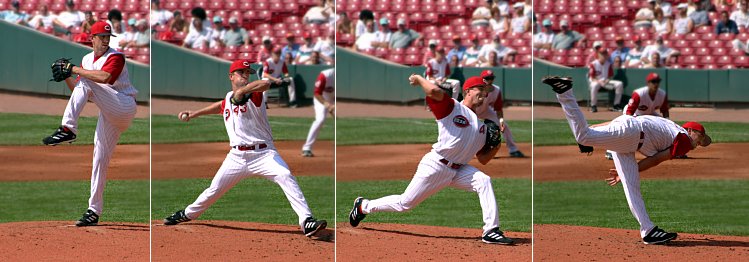Momentum
Momentum is a property of an object's motion. When a push or a pull (a force) acts on an object and changes its motion, the quantity that gets changed is momentum. Energy is required to change the magnitude (size) of momentum, but not its direction.[1] Specifically, momentum (written as ) is the mass of the object times its velocity (or speed with direction):[2]
A force exerted for an amount of time gives a change in momentum (a force exerted over a distance is work instead of a change in momentum):
Massive objects have more momentum for a given speed, while lighter objects have less momentum. This is why it takes more effort (force) to stop a fully loaded truck than an empty one. Likewise, faster moving objects have more momentum than slower moving objects.
One way to express kinetic energy is in terms of momentum ():

Momentum is an important physics concept, to learn more about momentum please see hyperphysics.
For Further Reading
For further information please see the related pages below:
- Kinetic energy
- Potential energy
- Mechanical energy
- Force
- Or explore a random page
References
- ↑ R. D. Knight, "Impulse and momentum" in Physics for Scientists and Engineers: A Strategic Approach, 3nd ed. San Francisco, U.S.A.: Pearson Addison-Wesley, 2008, ch.9, sec 1, pp. 242.
- ↑ There are corrections to this expression when the object is going near the speed of light, see hyperphysics for more details
- ↑ Wikimedia Commons [Online], Available: https://upload.wikimedia.org/wikipedia/commons/2/25/Baseball_pitching_motion_2004.jpg

